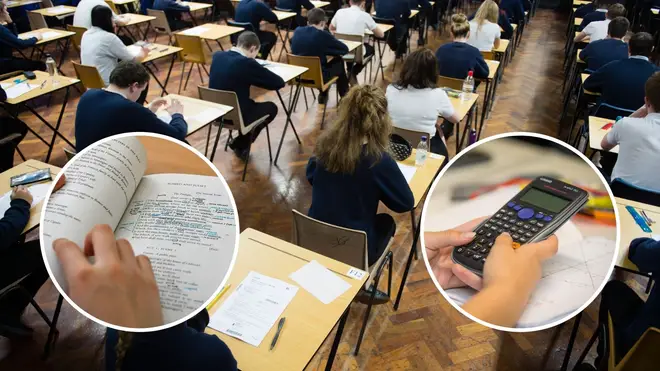
Clive Bull 1am - 4am
23 February 2022, 11:10

Students who fail their English or maths GCSEs may not be able to receive student loans under new Government plans.
The measures are being considered in order to prevent pupils from being "pushed into higher education before they are ready" and to ensure "poor-quality, low-cost courses aren't incentivised to grow uncontrollably", the Department for Education (DfE) said.
The tightening of controls comes as the number of school-leavers opting to go on to higher education continues to rise, according to new figures.
One part of the plans is the suggestion that students who do not get 2 Es at A level or equivalent - or at least a Grade 4 pass in English and Maths at GCSE - are blocked from getting a student loan.
Around a third of students currently fail to get a Grade 4 - the equivalent to a C or pass under the previous system - in English and maths.
And the threshold is set to become even more challenging after the Covid-19 pandemic caused disruption to students' learning across the country.
The proposals are set to be published later in the week before being put to consultation.
Read more: Boycott Champions League final in Russia, Truss tells Premier League teams
Read more: Heavy snow and strong wind to batter UK days after storms Franklin and Eunice

Student disappointed with online teaching and wants compensation if it's more than temporary
Data from Ucas - which runs university admissions in the UK - shows that 320,000 sixth formers have applied for university places so far this year, compared to 306,000 in 2021.
More poorer pupils have also been pursuing higher education, with 28 per cent of 18-year-olds from the most disadvantaged areas applying this autumn compared to just under 18 per cent in 2013.
However, the DfE said that while numbers of applicants are increasing, "not all students receive the same high quality of teaching" and many face thousands of pound of debt for courses with poor job prospects.
A spokesperson for the department said in a statement: "Our universities are a great British success story.
"They are powerhouses of innovation and are playing a key part in revolutionising the skills system, helping making lifelong learning possible with more flexibility and technical training.
"But we need to ensure that we are creating opportunities that will not only open doors but will develop the talent our country needs to prosper now and in the future.
"Higher education is an investment and we need to ensure that graduates are being rewarded for the money, time and effort they put into their studies with an educational experience and jobs that match their skills and help contribute to the economy."